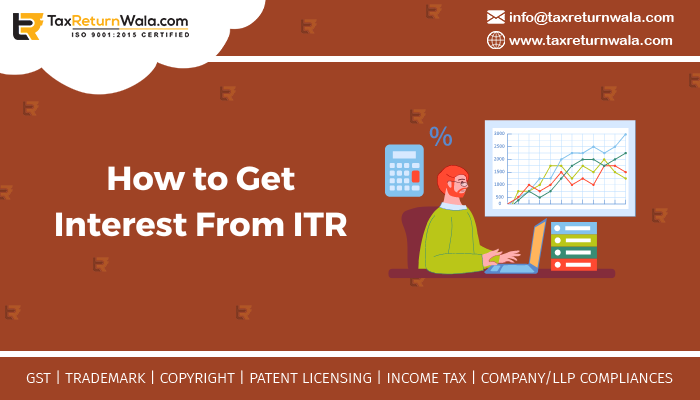Maximizing Your Income Tax Refund: Exploring Possible Options within Indian Tax Laws
Receiving a tax refund is a welcome relief for taxpayers, but did you know that you may be eligible to earn interest on your income tax refund? In this comprehensive blog, we will delve deeper into the various provisions and guidelines established by Indian tax laws that allow taxpayers to earn interest on their refunds. By understanding these options and adhering to the relevant tax and compliance regulations, you can maximize your tax refund and optimize your financial gains.
- Timely Filing of Income Tax Returns
- Filing within the Due Date: Ensure you file your income tax return (ITR) within the stipulated due date, as prescribed by the Income Tax Act, to be eligible for interest on your refund. Filing early allows ample time for the tax authorities to process your return and refund.
- Revised Returns and Late Filing: If you file a revised return or submit your ITR after the due date, any refund generated may not be eligible for interest. It is crucial to adhere to the deadlines set by the tax authorities to maintain eligibility for interest on refunds.
- Provisions for Interest on Refunds
- Section 244A: Under Section 244A of the Income Tax Act, taxpayers are entitled to receive interest on their refund if the amount exceeds 10% of the tax liability for the relevant assessment year. This provision ensures that taxpayers receive compensation for the delay in refund disbursement.
- Timeframe for Interest Calculation: Interest on the refund is calculated from the beginning of the assessment year until the date of granting the refund or the date of completion of the assessment, whichever is earlier. This ensures that interest is accrued for the period during which the taxpayer is awaiting the refund.
- Compound Interest: The interest earned on the refund is compounded on a simple interest basis, calculated at the specified rate for each financial year. The interest rate is determined by the Central Board of Direct Taxes (CBDT) and may vary from year to year.
- Claiming Interest on Refunds
- Filing the Correct ITR Form: Ensure you file the appropriate ITR form based on your income sources and category. Using the correct form is crucial to claim interest on your refund accurately. The wrong form may result in delays or complications.
- Verification of ITR: Verify and validate your ITR to ensure accuracy and compliance with Indian tax laws. Any discrepancies or errors may lead to delays or potential loss of interest on your refund. Double-check all details, including income, deductions, and tax payments, before filing.
- Refund Reconciliation: Regularly monitor the status of your refund through the Income Tax Department’s online portal. In case of any discrepancies or delays, promptly follow up with the relevant authorities. Keeping track of your refund’s progress ensures that you can take timely action if needed.
- Form 30: If the refund is delayed beyond the prescribed time limit, taxpayers can file Form 30 with the Centralized Processing Centre (CPC) to claim interest on the delayed refund. This form serves as a formal request to the tax authorities for the payment of interest.
- Interest Rates and Limitations
- Revised Interest Rates: The CBDT periodically announces the interest rates applicable for refunds. It is important to stay updated with the latest rates to ensure accurate calculations and maximize your refund. The interest rate for a particular financial year is generally declared by the CBDT before the beginning of the assessment year.
- Limitations on Interest: Interest on refunds is subject to certain limitations. For instance, there is a maximum interest amount cap based on the refund generated and the time taken for processing by the tax authorities. Understanding these limitations helps manage expectations and plan finances accordingly.
- TDS and Interest on Refunds: In case the refund arises due to excess tax deducted at source (TDS), interest on the refund may also be applicable. The provisions relating to TDS and interest on refunds are governed by specific rules and guidelines prescribed by Indian tax laws.
- Compliance with Tax Laws
- Accurate Reporting: Ensure accurate reporting of income, deductions, and tax liabilities in your ITR. Any inconsistencies or misrepresentations may result in delays or rejection of the refund claim. Keep thorough records and supporting documents for all financial transactions.
- Retaining Documentation: Maintain proper documentation, including proof of income, tax payments, and deductions, to support your refund claim and comply with Indian tax laws. This documentation should be retained for a prescribed period, as specified by the tax authorities.
- Seeking Professional Assistance: Consider seeking the guidance of a qualified tax professional or chartered accountant to navigate the complexities of Indian tax laws and ensure compliance while maximizing your refund. Professional expertise can help you accurately calculate your refund and claim any eligible interest.
By understanding the provisions and guidelines outlined by tax laws, you can optimize your income tax refund and potentially earn interest on the amount due to you. Timely filing of your income tax return, adherence to the prescribed forms, accurate reporting, and staying updated with the latest interest rates are key factors in maximizing your refund and complying with Indian tax and compliance laws.
By following these guidelines, you can ensure that you receive your entitled refund promptly, including any applicable interest, thereby enhancing your financial gains in a compliant and legally sound manner. Take advantage of these provisions to optimize your tax refund and make the most of your financial resources.
Need tax help?
We are just a click away!
Email at info@taxreturnwala.com


